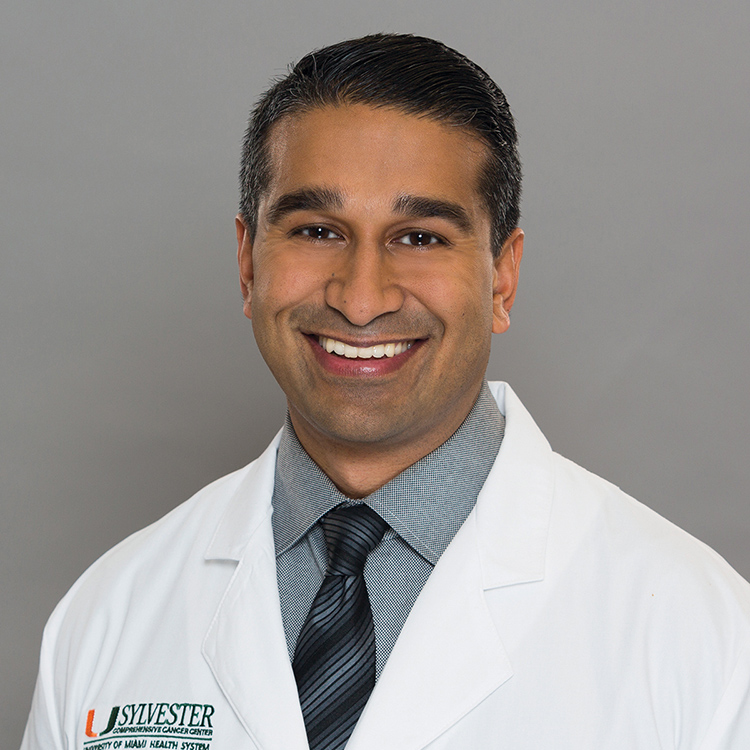The MRI-Guided Active Selection for Treatment of Prostate Cancer, or the Miami MAST Trial, headed by principal investigator Sanoj Punnen, M.D., a board-certified urologic oncologist at Sylvester and associate professor of urology, focuses on the one-third of men with prostate cancer who have tumors that grow so slowly they are placed under “active surveillance” by their physicians. In collaboration with the National Institutes of Health and the National Cancer Institute, the Sylvester group is using the newest technologies to determine which tests most accurately predict the best candidates to observe and the best to treat.
The clinical trial involves multi-parametric MRI (MPMRI) ultrasound or direct MRI-guided biopsies and tracks their relationship to historic transrectal ultrasound (TRUS)-guided biopsy rates. The research team is also trying to identify high-risk tumors early enough to reduce the proportionate number of patients who may have a poor response to delayed primary treatment.

In addition, researchers are investigating the impact of MRI and MRI-US fusion biopsy to identify higher grade or volume tumors early on for a better selection of patients for active surveillance, as well as improved outcomes for patients undergoing delayed treatment after an initial observation.
The focus is on achieving a more direct sampling of tumors from compartments that have distinct MP-MRI
characteristics that increase the “progression” on early first or second surveillance biopsies and decrease the rate of “progression” on third and fourth surveillance biopsies.
“Prostate cancer takes a physical and emotional toll, and our greatest satisfaction is knowing that our research has real meaning and will make a difference in the lives of patients,” said Dr. Punnen.
The study is expected to be completed in October 2020 and is being funded by grants from the National Institutes of Health.